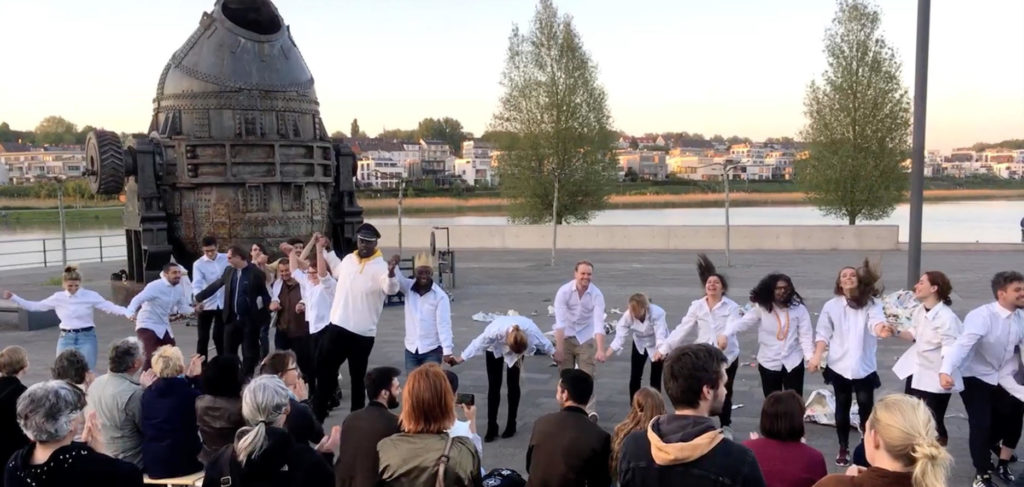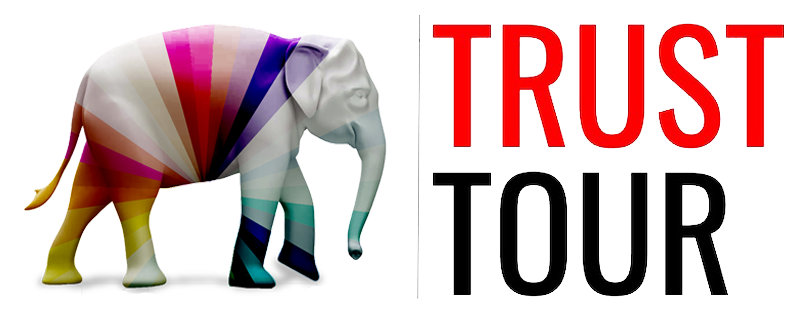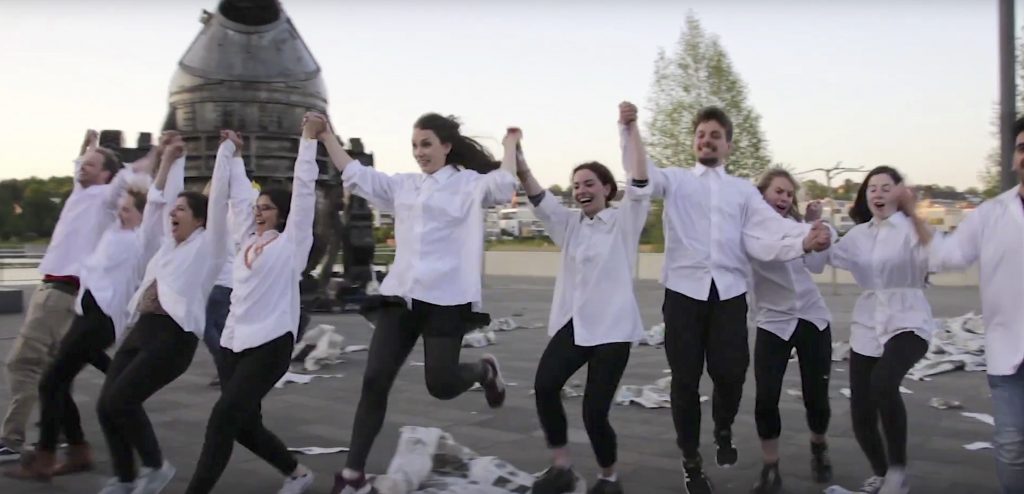
The Exchange
22 young European and refugees gathered in Dortmund (at Kinder- und Jugendtheater, Germany) for an artistic and civic exchange, from 29 April to 5 May, 2018. The exchange was organised by Theater Dortmund (KJT, Germany), in partnership with Teatro Rigodon (Italy), La Transplansiphère (France) and ExQuorum (Portugal).
The objective of this exchange was to explore common cultural roots in order to better understand Europe as a whole. During this exchange, participants used theatre and its unique ability to tell stories to convey these reflections. In various artistic workshops the participants worked in groups on different elements of the mythology of Odysseus. They brought stories, music, artistic techniques and personal experiences from their countries of origin to create an original performance and to produce a comprehensive dialogue based on respect and trust.
With the help of theatre, music and movement/dance, the participants have dealt with the topics of a global and common history (Odyssey) in connection with the fate of refugees in today’s Europe.
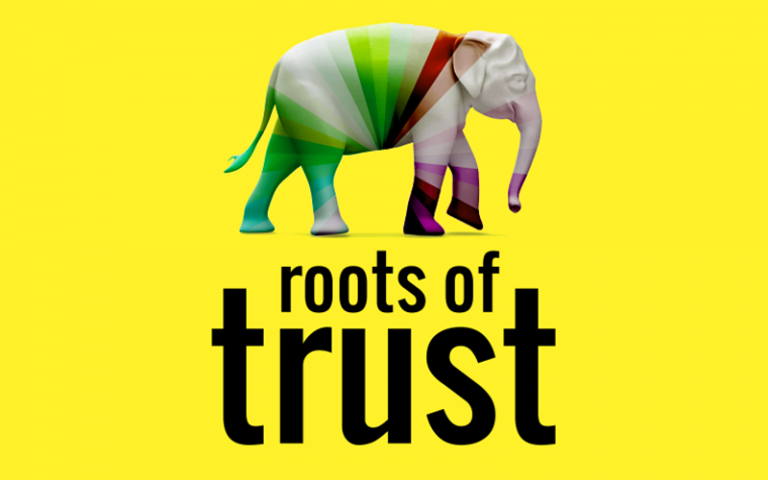
The Participants
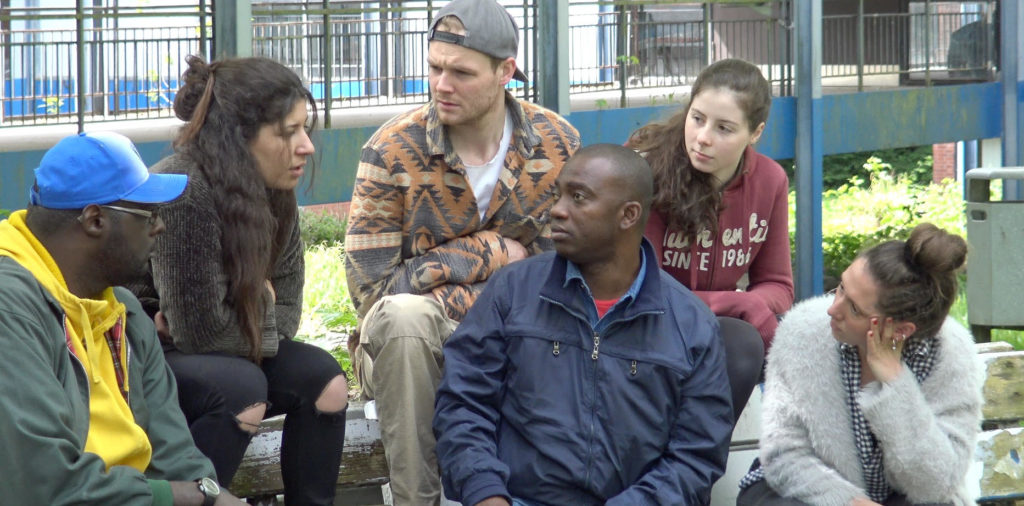
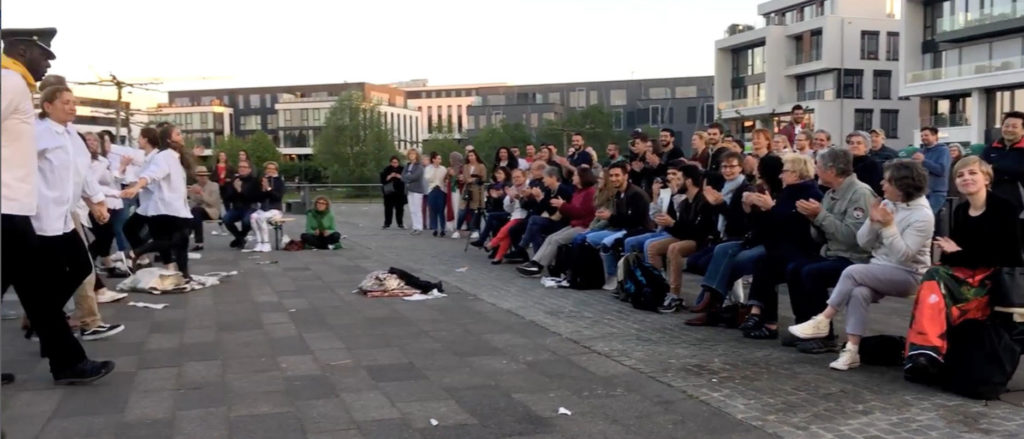
The group of 22 participants was very heterogeneous and was composed of pupils, students, professional artists, amateurs and refugees from 16 to 30 years old.
The participants came from Dortmund, Paris and Le Raincy (near Paris), Evora in Portugal and Rieti in Italy. There were also two Spanish participants, two participants from Syria, who have lived in Dortmund since 2016, and one participant from Burkina Faso, who lives in Rieti.
Up to five languages were represented during this meeting: German, French, Italian, Spanish and Arabic. To illustrate this cultural diversity, all the participants’ mother tongues were presented in linguistic and vocal forms during the final performance.
The Pathway
Practices sharing
One of the aims of the meeting was to encourage the participants to act and shape their own lives independently. For this purpose, the exchange offered practice-sharing sessions, during which one participant presented a specific skill to the others. During these enriching and creative sessions, the participants discovered Arabic danse presented by two Syrian participants, a special technique of screaming used in some metal music, Karate, dynamic meditation or even an Italian game. The feeling of being able to give something to the group was very uplifting for the participants.
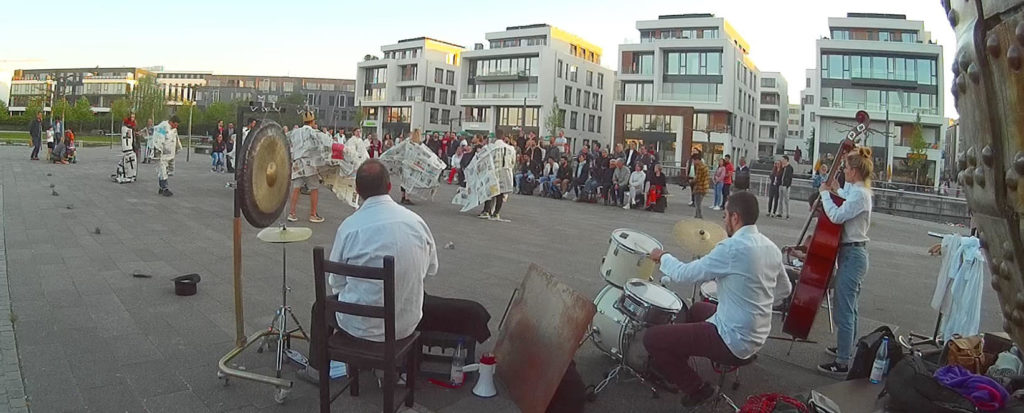
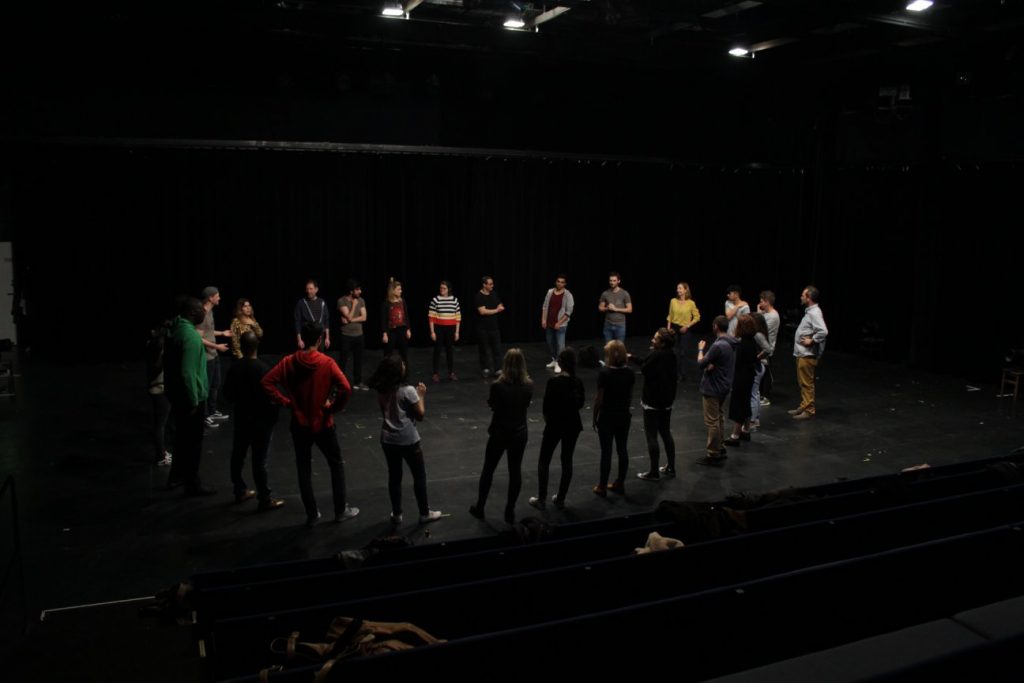
Group workshops
Participants were divided into different working groups dealing with some aspects of the Odysseus mythology. In the three workshops, the following topics were explored: the sirens (seduction), the land of the dead and the return from the land of the dead.
The first group worked with musical elements and texts created from statements of the participants. The content illustrated the image of Europe inwards and outwards and the seduction that emanates from this image outside Europe. The second group concentrated on movement sequences and dance elements to represent the underworld. The third group developed welcoming rituals and a fantasy language.
Performance
The 3 workshop groups combined their work to create an original final performance. These creations resulted in an interesting theatrical structure in which play, music, text, choir, different languages and visual means were combined.
To prepare this performance, the participants also attended a historical explanation of the Dortmund-Hörde district and a report by Dortmund journalist Hatin Citkin on the situation of migrants and refugees in Dortmund.
At the end of the exchange, the participants performed a public presentation at the Phönix-See in Dortmund, which was attended by about 200 spectators. The feeling of having created something together filled everyone with visible pride.
